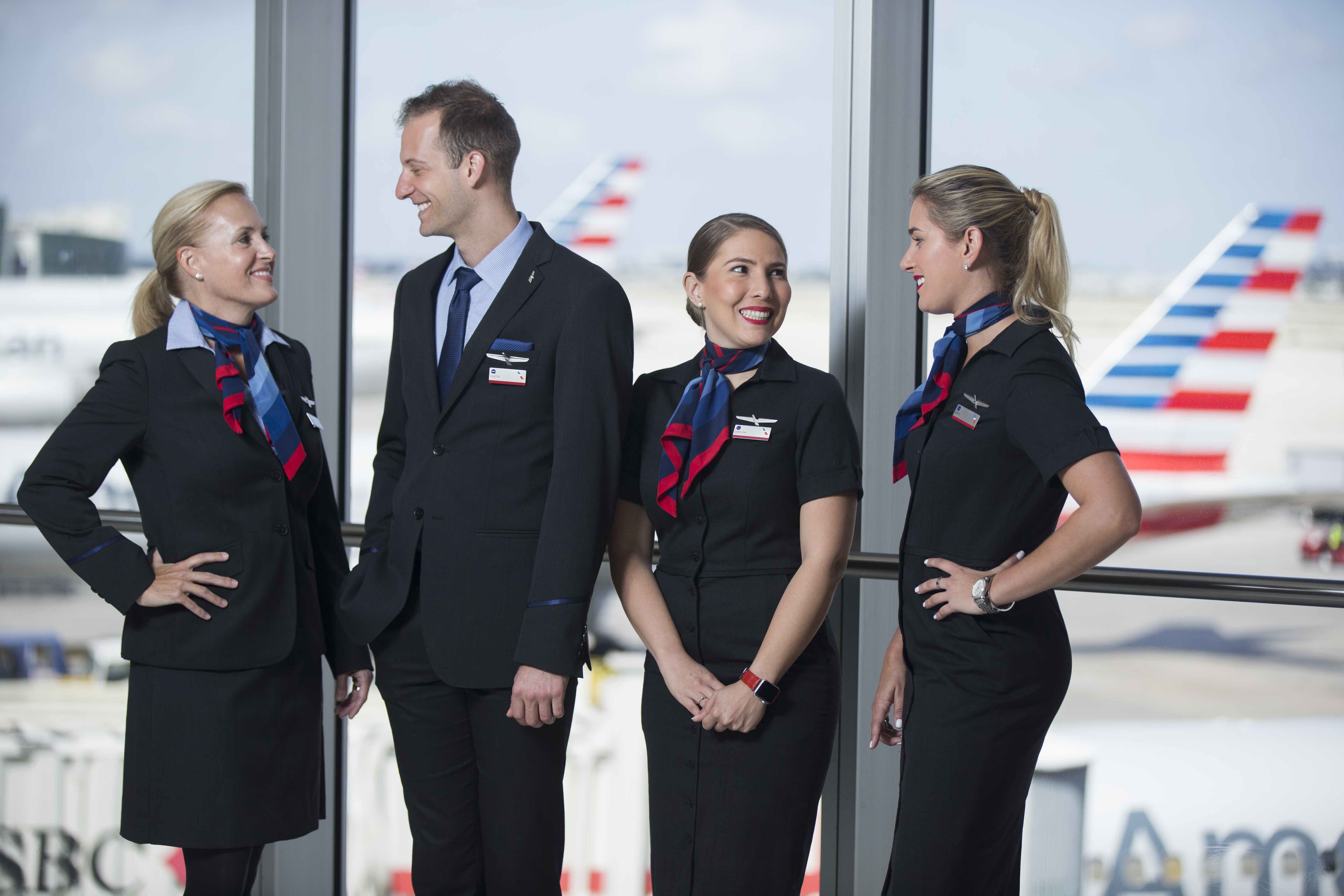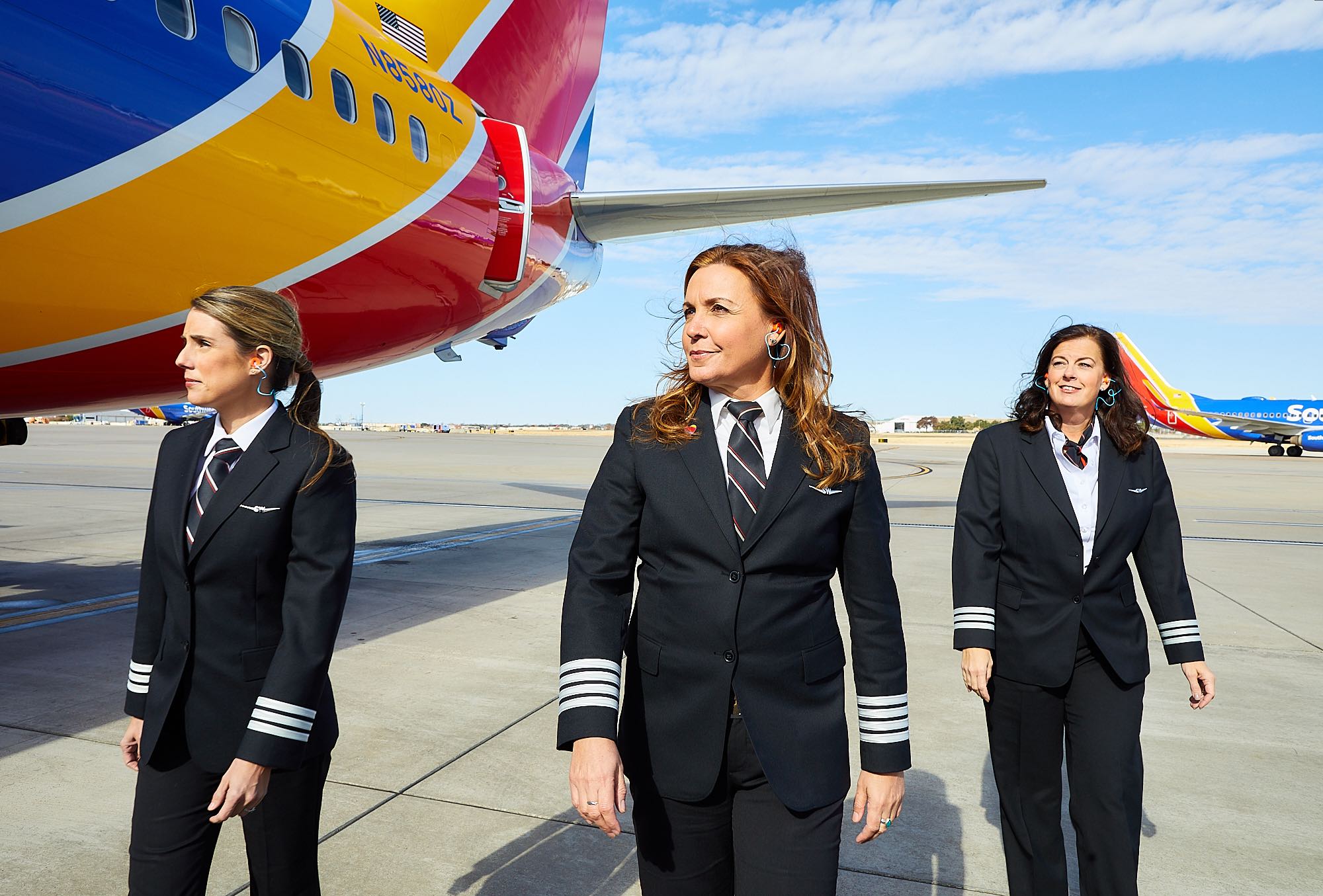Boeing’s 737 MAX has been a divisive issue amongst airlines employees and the traveling public. American Airlines flight attendants refuse to fly it while Southwest pilots sue Boeing because they can’t. What?!?
If you are considering booking travel or signing up for a new credit card please click here. Both support LiveAndLetsFly.com.
If you haven’t followed us on Facebook or Instagram, add us today.
American Airlines Flight Attendants Refuse to Fly the 737 MAX
Representation from the Association Professional Flight Attendants (APFA) has stated this week following testimony in Washington DC from Boeing officials that they will not allow their members to fly unsafe aircraft, namely, the Boeing 737 MAX.
The question, then, that follows is how could American Airlines return the 737 MAX to the fleet without union support. The union won’t allow some of their members to fly the plane and not others. Their contract with the company won’t allow American to outsource 737 MAX employees for mainline flying, and even if they could find a way to do so, the cost and arduous process of implementing a fleet-specific staff would be a monumental undertaking.

Southwest Pilots Sue For Lost Hours
While the APFA may have to sue to keep their members from away flying the type, Southwest pilots are taking legal action because they can’t fly the planes. Southwest Airlines pilots are suing for lost wages in what would have constituted significant expansion for Southwest who already owns 34 MAX airframes.
The pilots are going after Boeing, for being responsible for delivering the aircraft safely and reliably to the carriers but in truth, the aircraft manufacturer has little power to return the plane to the skies. If Boeing has engineered the fix and made necessary changes to the plane, it’s still up to the FAA and other flight governing bodies to allow the planes to return.
Southwest pilots know that suing the FAA would be fruitless while Boeing may yield some financial relief. Whether the pilots receive remuneration as a result of a judgement or a settlement, the pilots are likely to see something come their way. The question then will be, what about the other employee groups at Southwest? A judgement would plow the way for ramp and gate agents, baggage handlers, flight attendants and even Southwest corporately to sue and win. If they are successful, what about the other affected carriers and their respective employee groups?
Is A Decision Near?
American Airlines representation issued their statement after Boeing CEO’s testimony before US lawmakers. The Southwest lawsuit has been in the works for some time following the grounding last year. The 737 MAX is experiencing a rolling delay in its quest to return to flying, every few months the plane is perceived to be just on the cusp of returning to flying and then doesn’t. The new target is the current quarter, Parker and Co. have put it on the schedule for January 16th.
Even if a decision is near, I suspect that other world regions will hold back their permission to fly. Europe’s governing body may wait awhile to ensure no new problems arise before allowing the 737 over their skies. If a January return happens in the US, that will release some of the tension built up around the plane, give some relief to Boeing as they prove that their aircraft is safe.
However, the longer the delay persists, the more likely it seems that the aircraft may not return at all.
Conclusion
Last week I asked the question as to whether or not the 737 MAX could bury Boeing (I hope that it doesn’t.) While some believe that the carrier is too big to fail, if the Southwest pilots win their lawsuit or the APFA sues to keep their members from flying it – the courts may make a situation so dire that Boeing has to rethink releasing the plane regardless of approvals. If the aircraft does return to service but the APFA successfully blocks their members from flying it, is the APFA protecting their membership or hurting their membership as Southwest pilots believe?
What do you think? Is the aircraft safe to fly? Is the labor union protecting their employees by fighting to keep them off the aircraft? Is it failing them by not allowing them to fly it if they so choose?





What a poorly written article, discussing a poorly designed plane. How low have we all sunk?
Low enough to comment?
It was an intentionally poor design. That’s a whole world of difference.
Really that’s your response to this?Sitting here appalled at Boeing for not correcting a problem they knew they had & putting so many people’s lives at risk for the almighty $buck$ considering I take at least two trips a year, not to mention the hundreds of thousands of others, n even took a moment to remember n silently apologize to the 400 victims that died because of their carelessness – while you’re more interested in being petty & belittling the author.
“But HE’S “the dummy.”
You know what they say about people who insult the messenger rather than address the message ..
Airplanes already scare the hell out of me. Thanks for all the info. Yes N
The underlying problem for both Southwest and American Airlines are actually the same. Boeing has produced an unsafe plane. So the actions of both airlines are not contradictory. After the Boeing CEO’s testimony, it has become clear that Boeing has deliberately placed profit before safety, hence placing the lives of aircrews and passengers at risk.
737 is still a very safe plane. Had they just raised the undercarriage height instead of “inventing” around that major historical disadvantage of it.
I thought about that as well. Here’s the challenge:
To “raise” the undercarriage height, the landing struts need to be lengthened. That means making the ports where the landing gear is stored larger/longer. I expect that requires moving everything that’s AROUND those ports into other places. Heavier and longer landing gear also affects the flight dynamics of the aircraft. Not necessarily in a negative way, but it will probably “feel” different requiring pilots to undergo re-simulation to be certain. And that was the major sticking point to fast tracking this for airlines to put existing pilots certified with the 737 into them quickly.
My experience as a longtime airline employee leads me to believe that revenue needs will supersede safety considerations.
Fitting front page picture selection for the Max. Looks like it’s about to stall and fall out of the sky.
Quite logical. Who would want to fly an unsafe plane anyway in the full knowledge that it has a hardware design flaw that is camouflaged by aggressive software settings to keep the thing from dropping out of the sky. As has happened twice.
Boeing should focus on fixing their problems rather than smoothtalking them away and pooping out press releases.
Their older 737’s are also being grounded now around the world because of cracks in the frame and several airlines have complained about the poor quality of the 787’s. It is clear Boeing has severe issues to address here.
No the 737Max will not fly again as passengers and apparently airline staff have lost trust. FAA may or may not re-approve the thing for flying but that is totally irrelevant globally except for the US domestic market.
The perceived failings of the DC10 destroyed the company ( albeit a much smaller outfit than Boeing). That was 1 significant design flaw, relatively easily fixed, plus a whole lot of bad luck ( eg, Air NZ at Erebus and others).
Boeing is just 1 MAX crash away from becoming very vulnerable, whatever the cause of it. Already Airbus has surpassed them in respect of being a trusted brand…something unthinkable even 10 years ago.
I used to be flying across the world 3 weeks in every month for Price Waterhouse.
– Tupolev 154s did not bother me in Russia and Eastern Europe
– DC10s did not bother me (My wife however refused to fly DC10s
My next door neighbour was test pilot for the De Havilland Comet – Would happily fly in the Comet after window modification.
BUT You will never find me flying in a 737 MAX.
The problem is not the Boeing 737 Max.
The problem is 2 fold:
1. Boeing management. i.e., Boeing corporate culture.
2. The cost of Health Care for Boeing – a cost driver that forced the outsourcing of labor to the $9 an hour engineers in India.
As described by Boeing engineers, there was a culture change in the late 90’s at Boeing.
Whereas previously they were encouraged to elevate safety & quality concerns to management attention, starting in the late 1990’s, Boeing engineers were PUNISHED for bringing safety concerns to management attention.
Given that Boeing is making passenger airplanes, de-prioritizing safety was equivalent to committing corporate suicide. The stage was set for the 2 crashes that occurred 20 years later.
Airbus employees all have full health care – bloody commies.
No crazy commie stuff, but, as always, it seems greed catches up with people. The manufacturer, the airlines (Doug Parker’s “Oasis,”) they all ended up being caught in it, and it unraveled.
It wasn’t Boeing’s idea to build the 737 MAX aircraft, it was pressure from airlines that wanted to lower fuel cost that caused them to put larger, more fuel efficient engines on a smaller airframe.
The 737 MAX is no more unsafe to fly than all the other unsafe aircraft designs presently being flown.
The FAA also had a hand in this problem with their pilot type ratings certifications, as did the airlines in which these planes crashed.
Easy. Hire pilots from lion air. They’re brave enough to do so. Eventough Matt would condemn such move, and 121wannabepilot would argue they’re not trained enough since they weren’t airforce veterans. Then again, if the maker (Boeing) certify them as qualified to fly it, why won’t anyone trust one of the biggest US exporter, right?
Who hurt you, James?
Boeing must scrap the plane and go back to building the old style 737 which was a work horse for the airline industry. You have to be crazy to take a flight with your friends and family on the 737 max. Your life is more valuable then just a flight on the max. If the airlines go back to the old style of 737. All they have to do is charge a small amount more for fuel, everybody will except this for piece of mind and will be happy to fly Boeing planes again.
The simple reality is this. First the union does not have the power to stop their FA’s from flying on the airplane nor can they refuse assignments because they feel airplane is unsafe. Like it or not when the FAA certifies the airplane again and the grounding gets lifted they are going to be flying it like it or not.
Second it’s worth noting that I know a number of 737 drivers and to a man they would fly a MAX today without any mods. Why? Because they understand how MCAS works and how to override it safely.
By the time it gets back in service the issues that lead to the grounding will have been addressed and the airplane will be safe to fly.